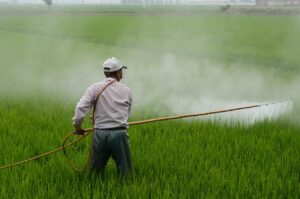Leeds is in the top 10 urban areas for percentage of deaths caused by transport-related air pollution, according to International Council on Clean Transportation (ICCT) research.
The study looked at data from 2010-2015 with researchers studying PM2.5 and NO2 emissions alongside epidemiological models to determine how, when, and where transportation emissions are impacting air quality and public health.
They said they examined all forms of transportation emissions including shipping and non-road mobile sources such as agricultural and construction equipment and rail transportation before estimating deaths in 100 major urban areas around the world.
In 2015, Leeds, the transport-attributable fraction for deaths was 34.7%, above other global pollution hotspots such as Shanghai, Mexico City and New Delhi.
Even though urban areas in Asia and South America have large numbers of transportation-attributable deaths, the report says they have a lower number of deaths per 100,000 due to high overall pollution concentrations from other emission sources such as coal-fired electric generating units and residential solid fuel combustion for cooking and heating.
Across the UK, researchers estimated there were 8,400 deaths linked solely to transport emissions in 2015. Of these, 46% were attributed to diesel vehicles, 6% to non-diesel, 10% to non-road mobile sources and 38% to shipping.
Milan, Turin, Stuttgart, Kiev, Cologne, Haarlem, Berlin, Rotterdam and London made up the rest of the top 10.
Taxis in Leeds.The report says that even though market leading economies such as the UK have enforced more stringent vehicle emission regulations, the transportation sector remains a major contributor to the air pollution disease burden globally.
Since 2015, vehicle fuel economy improvements have slowed globally, according to a report by the Global Fuel Economy Initiative (GFEI).
The slowdown was especially pronounced in advanced economies and 27 countries saw an increase or stagnation in average vehicle CO2 emissions in the two years up to 2017.
Neville Street in Leeds was named as the most polluted street in the UK outside of London, and last week the Leeds Climate Commission presented a report to the city council which said Leeds needs ‘deeper and faster’ emissions cuts if it is to become carbon neutral by 2050.
The city will implement a Class B Clean Air Zone from January 2020 that will cover over half of Leeds city centre, with HGVs, buses and coaches set to be charged £50 per day for travelling in the zone if they fail to meet the minimum emissions standards.
Leeds-based clean air campaigner Rachel Hartshorne told Air Quality News she was ‘very disappointed but not surprised’ to see Leeds appearing on a global list of transport pollution black spots.
‘We have been campaigning on this matter for two years and the council have failed to make the radical changes needed to reduce air pollution.
‘At the very least the proposed Clean Air Zone should be expanded further and include private vehicles,’ she added.
Air Quality News has approached Leeds City Council for comment on the ICCT report.
Other findings in the report include:
- Emissions from the transportation sector were responsible for 11.7% of global PM2.5 and ozone deaths in 2010 and 11.4% in 2015.
- On-road diesel vehicles accounted for 60% of transportation-attributable PM2.5 in 2015.
- Vehicle tailpipe emissions were responsible for an estimated 5.43 of deaths per 100,000 people globally in 2010 and 5.38% deaths per 100,000 people in 2015.
- PM2.5 and ozone concentrations from transportation emissions resulted in 7.8 million years of life lost and approximately $1 trillion in health damages globally in 2015.
- From 2010 to 2015, transportation attributable deaths declined by 14% and 16% in the EU and United States but increased by 26% in China and India
















